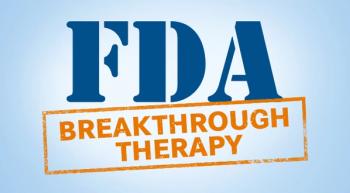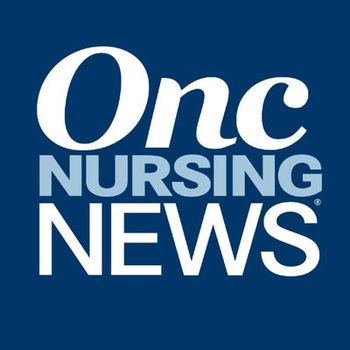
Significant weight loss, increased blood glucose levels, and older age at onset of diabetes may be useful in determining the risk of pancreatic cancer in people newly diagnosed with diabetes.

Significant weight loss, increased blood glucose levels, and older age at onset of diabetes may be useful in determining the risk of pancreatic cancer in people newly diagnosed with diabetes.

A recent review of data found that 79% of patients with ovarian cancer felt uncomfortable raising psychological and emotional concerns during their consultations.

Sharon Mitchell, RN, stood up for her profession at Pennsylvania’s first-ever Nurses Safe Staffing Summit in Harrisburg, Pennsylvania on July 30-31, speaking and participating in an event to draw attention to safe staffing bills.

The FDA has granted a second breakthrough therapy designation to the combination use of lenvatinib (Lenvima) and pembrolizumab (Keytruda) for the treatment of patients with advanced and/or metastatic non–microsatellite instability high (MSI-H)/proficient mismatch repair endometrial carcinoma who have progressed after ≥1 prior systemic therapy.

In a phase 1 clinical trial, researchers injected a genetically altered version of the poliovirus into glioblastoma tumors.

Check out the top 5 Oncology Nursing News stories for July 2018 in this video recap.

The FDA has approved iobenguane I-131 (Azedra) for adult and pediatric patients 12 years and older with iobenguane scan–positive, unresectable, locally advanced or metastatic pheochromocytoma or paraganglioma (PPGL) who require systemic anticancer therapy.

The Leukemia & Lymphoma Society (LLS) is known for its assistance to patients, but did you know that this organization also offers many resources for clinicians as well?

Physicians’ Education Resource (PER)® set to host 2nd Annual School of Nursing Oncology™ from August 3 through 4 in Chicago.

The event recognizes individuals dedicated to empowering people affected by myeloproliferative neoplasms.

The FDA has approved the Magtrace and Sentimag Magnetic Localization System to identify and remove sentinel lymph nodes in women undergoing mastectomy for breast cancer.

Vassiliki A. Papadimitrakopoulou, MD was honored at the 19th Annual International Lung Cancer Congress.

New York City agreed to pay a $20.8 million settlement for its nurses and midwives who filed federal discrimination charges against the Justice Department, claiming it did not recognize their work as “physically taxing” compared with City employees who were predominantly male in physically demanding roles.

Survey to explore issues affecting care providers, patients, and programs.

CURE Media Group’s flagship product, CURE® magazine, the nation’s leading consumer digital and print media enterprise focusing on patients with cancer, will be hosting its monthly TweetChat on Thursday, July 26, at 1 pm EDT, for readers to ask questions and to facilitate discussions about the role of cancer caregivers.

Nurses who work with potentially harmful oncology medications should know how to handle them safely, and what to do if they are exposed to hazardous material accidentally.

The Food and Drug Administration approved filgrastim-aafi (Nivestym), a biosimilar to filgrastim (Neupogen), for all eligible indications of the original product.

This hike marks the fifth continent to be visited by a Moving Mountains for Multiple Myeloma team.

The FDA has approved the oral IDH1 inhibitor ivosidenib (Tibsovo) for the treatment of adult patients with relapsed/refractory IDH1-mutant acute myeloid leukemia (AML).

The FDA has granted a breakthrough therapy designation to atezolizumab (Tecentriq) for use in combination with bevacizumab (Avastin) as a first-line treatment for patients with advanced or metastatic hepatocellular carcinoma (HCC).

The FDA has granted a priority review to antibody-drug conjugate sacituzumab govitecan for the treatment of patients with metastatic triple-negative breast cancer following at least 2 prior therapies for metastatic disease.

The US Food and Drug Administration (FDA) approved two ribociclib (Kisqali) combination treatments for subsets of advanced breast cancer in less than a month using a pilot process called the Real-Time Oncology Review.

Inadequate oversight has distorted the noble intent of the 340B Drug Pricing Program, transforming it into a perverse profit generator for many of America’s tax-exempt hospitals.

Treatment with niraparib (Zejula) demonstrated durable responses among women with relapsed or refractory ovarian cancer regardless of BRCA mutation, study shows.

If the Senate’s version of the Department of Defense Appropriations Act, 2019 is signed into law, young adults could lose millions of dollars of support for AYA-specific research.

Clinicians at Rush University Medical Center identified the possibility that folate deficiency could be an adverse event related to olaparib (Lynparza) women take for relapsed ovarian cancer, and recommend further studies.

The FDA has approved enzalutamide (Xtandi) for the treatment of patients with nonmetastatic castration-resistant prostate cancer (CRPC).

Not enough discussions are occurring between oncologists and patients with advanced cancer around goals of care.

Based on the identification of 6 gene variations that make carriers susceptible to developing medulloblastoma and possibly other cancers, researchers have proposed subgroup-based counseling and screening recommendations.

The frontline combination use of atezolizumab (Tecentriq) plus nab-paclitaxel (Abraxane) yielded a significant reduction in the risk for disease progression or death compared with nab-paclitaxel alone in patients with metastatic or unresectable locally advanced triple-negative breast cancer (TNBC).